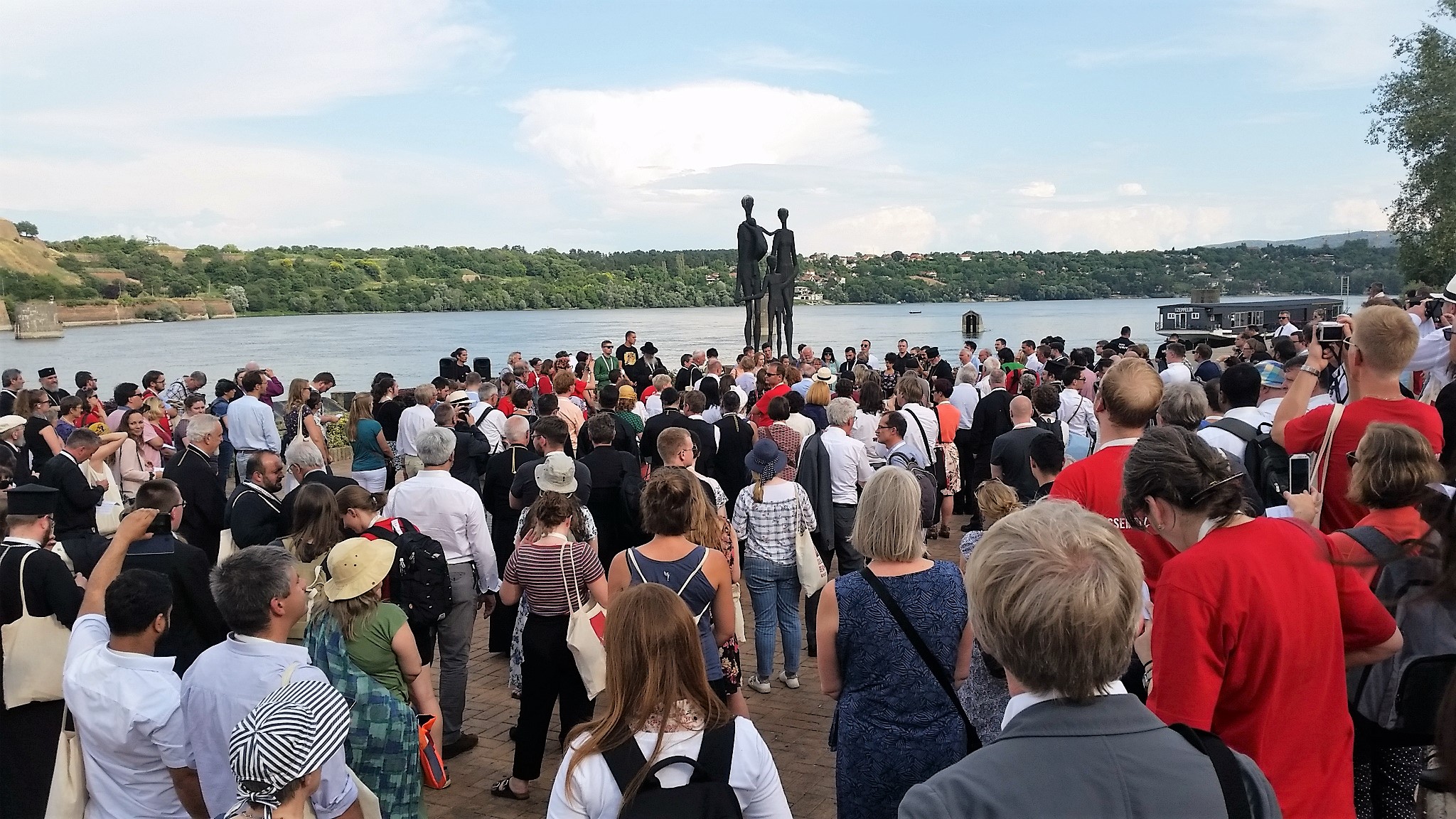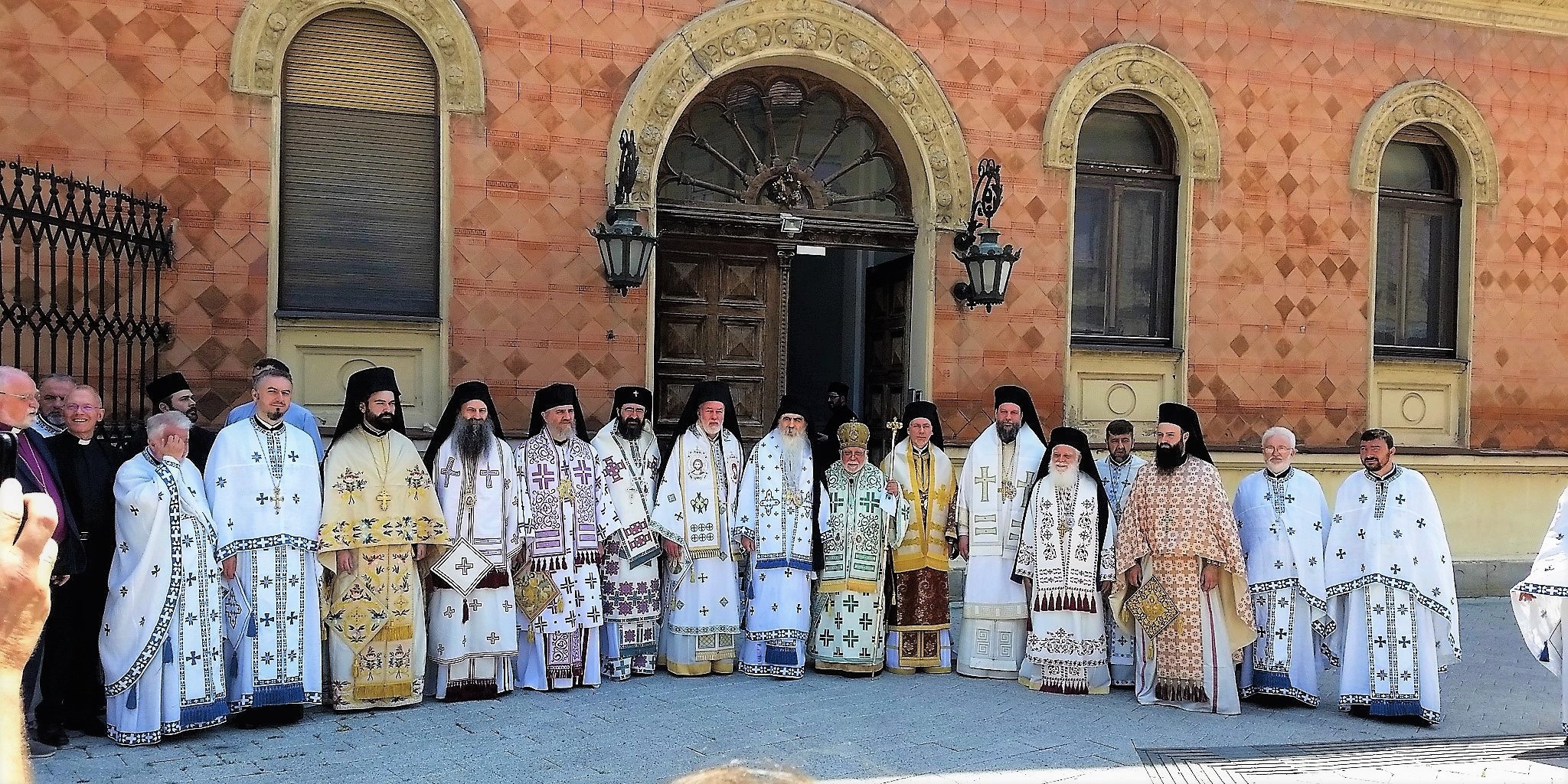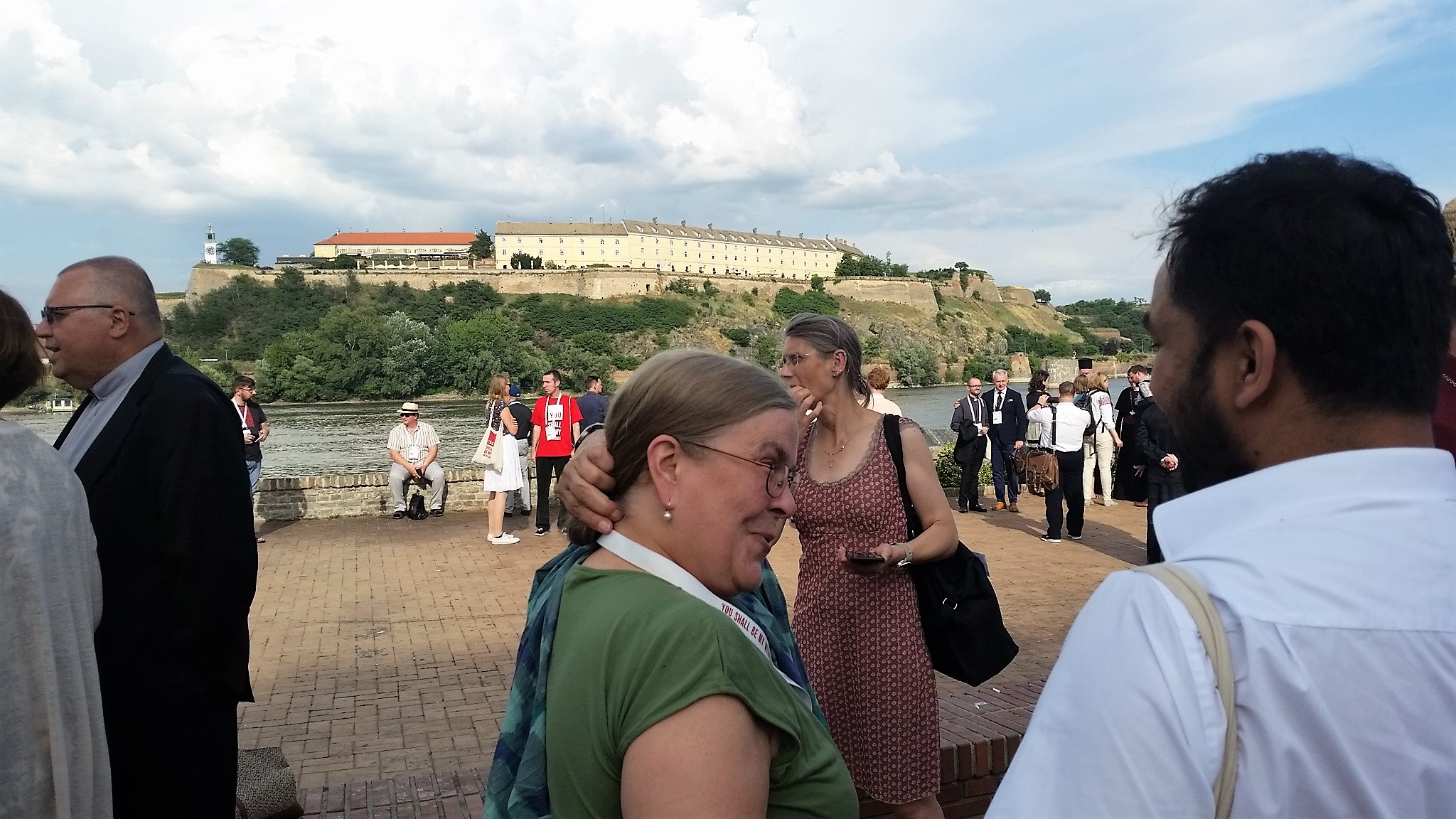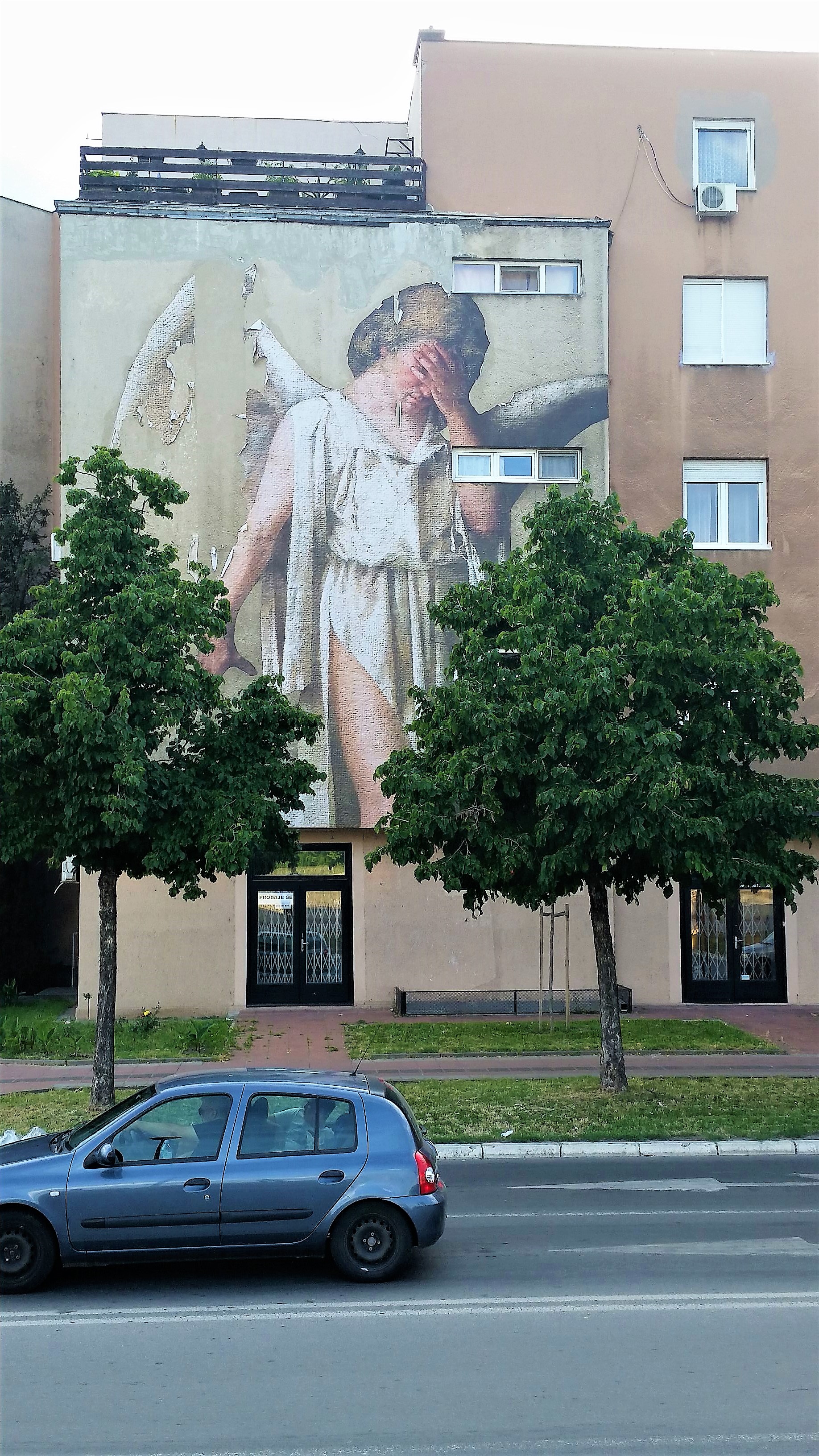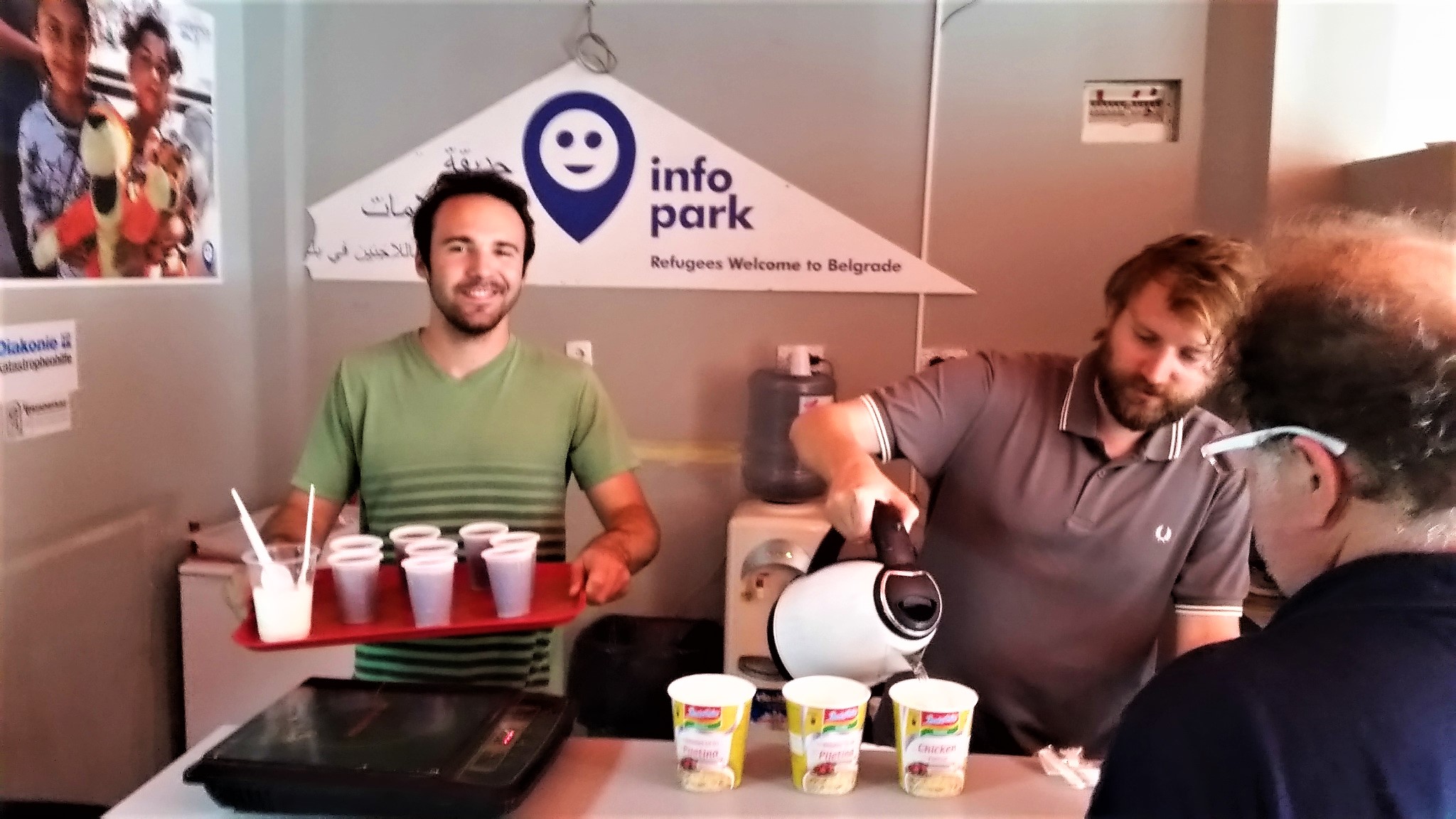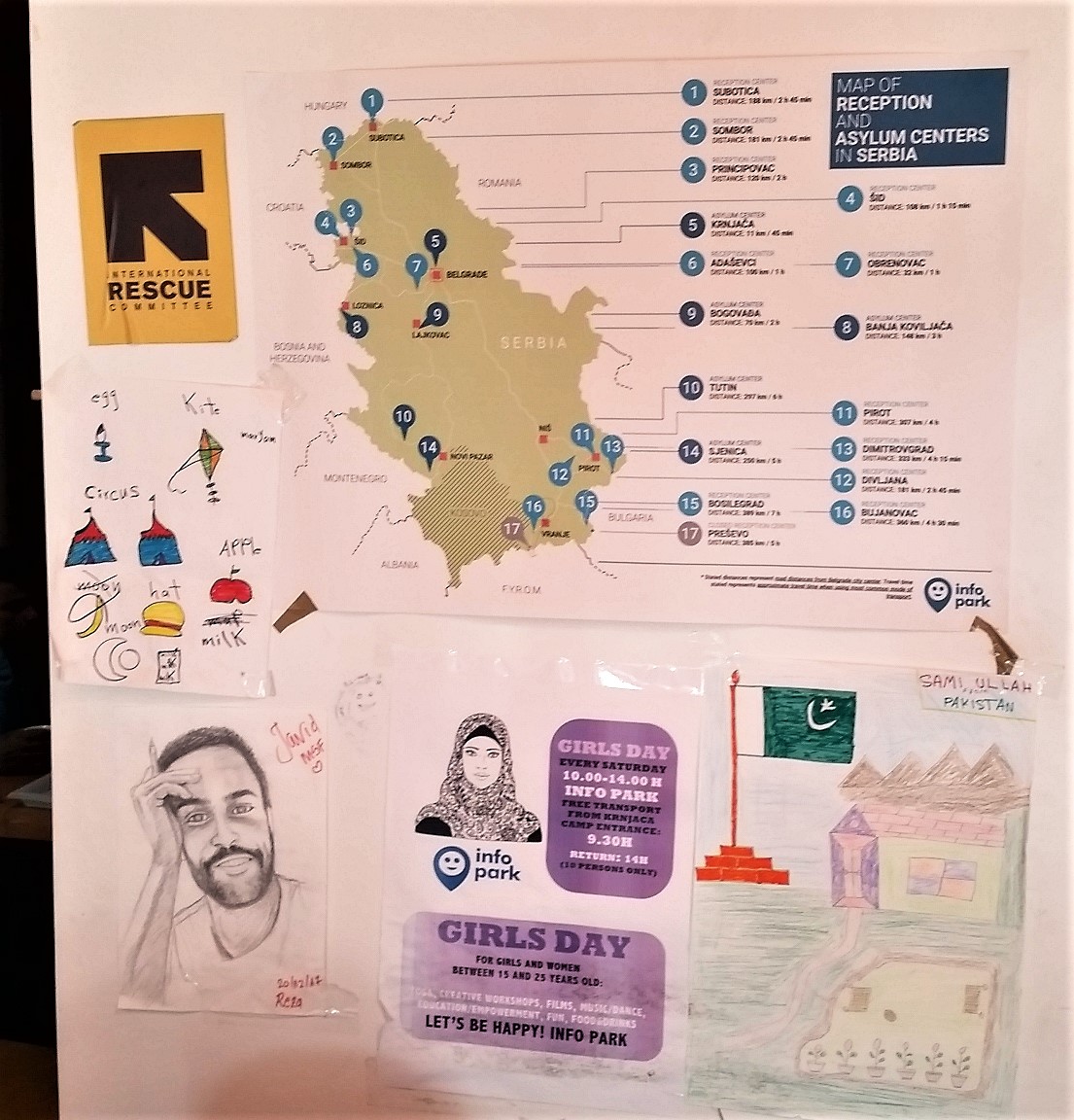A Letter from Burkhard Paetzold, serving as regional liaison for Central and Eastern Europe and facilitator of work with the Roma people, based in Germany
July 2018
Write to Burkhard Paetzold
Individuals: Give online to E200392 for Burkhard Paetzold’s sending and support
Congregations: Give to D506900 for Burkhard Paetzold’s sending and support
Churches are asked to send donations through your congregation’s normal receiving site (this is usually your presbytery)
Dear Friends,
Warm greetings from Berlin, Germany, and thank you for all your prayers and support.
How much is Europe divided? This has been a question throughout history — a question that also relates to a division of faith traditions and of power struggles of churches.
When I visited Prague with a group from Sewickley Presbyterian Church in Pennsylvania in late June, we heard a lecture from Prof. Peter Slama of the Theological Faculty of the Prague Charles University. He spoke of the Thirty Years War that started in the Czech lands in 1518 as an example of how devastating divisions in Europe have been. That was 500 years ago.
What has the ecumenical unity of churches in Europe to do with the unity of Europe today, and why is witnessing Christ important when we look responsibly at the challenges in Europe and globally? These challenges framed the debate of the 59th General Assembly of the Conference of European Churches (CEC), an event that brought together around 500 people in a week in June in the city of Novi Sad, Serbia, at the river Danube, which flows from west to east, crossing or touching 10 different countries, more than any other river in the world.
The 500 participants included 150 delegates from 114 churches of different denominations from 49 countries (Old-Catholic, Orthodox, Old-Oriental, Lutheran, Reformed, United, Baptist, Methodist and others. The Roman Catholic church is not a member, but was represented by observers). Among the delegates were quite a number of youth advisors who had gathered for a youth pre-assembly before the CEC General Assembly (GA) and who challenged the delegates to be explicit about the future we desire for Europe.
I had the privilege of being invited as an observer for the PC(USA), together with Philip Woods, our Presbyterian World Mission coordinator for the Middle East and Europe.
Peace and Reconciliation
The CEC was founded in 1959 during the peak of the Cold War in Europe, so it has strong experience with divisions and a proud history of being a bridge builder not only between different faith traditions, but also between political enemies. Since its founding, it has been an important podium for dialogue and continues to be an important network for exchange.
Novi Sad in Serbia is a symbolic place reminding us that during the war in the former Yugoslavia in 1999, NATO bombardments destroyed — among others — all of the Danube’s bridges. Even though several bridges are rebuilt now, wounds are not healed even today. To remember this very recent war in Europe, the CEC GA held a devotion at the river banks and planted trees.
Peace and reconciliation were important themes during the sessions of the CEC assembly. Reconciliation is needed between nations as well as within our societies.
The assembly is concerned that spending on weapons is higher than it has ever has been since World War II and “eats up” 35 times more than the UN budget. There is fear that EU foreign policy is becoming even more militarized. The current US president is pressuring European states to increase their military spending to a target of 2 percent of their GDP. The CEC assembly says in the long run it’s more important that Europe puts more efforts and funds into reconciliation, prevention, peace-building and diplomatic solutions.
Refugee Protection — A Task of the Churches
The assembly found clear words to remind us that witnessing Christ in a time when many millions of people are fleeing conflict, oppression, war and destruction means giving priority to saving lives before building a “fortress Europe.” Integration of refugees and migrants into European societies belongs to our European values we should not give up on. There should be no criminalizing of NGOs and individuals who support refugees out of their obligation that comes from their spirit of Christian love.
Two very recent examples show how important this conviction is. The Hungarian government issued a law threatening NGOs and individuals not to help refugees, which makes me very concerned about our friends at Kalunba Refugee Aid.
The German Minister for Interior — among others — wants to criminalize the volunteers on rescue vessels in the Mediterranean who save the lives of hundreds of boat people at a time his party comrades are talking cynically about “asylum tourism.” In an open letter, the helpers invited him to spend a few days on one of their boats.
The GA of the CEC meets every five years, so they initiated a regional consultation process related to the question, “Which future do we want in Europe?” and some items of that discussion were presented in workshops. I attended two workshops.
The workshop “Refugee Protection — a Task of the Churches” was chaired by Churches’ Commission of Migrants (CCME). I learned that closing certain borders doesn’t stop refugees from coming to Northern Europe, but increases the “prices people pay with their lives” and the prices people-smugglers ask for. That’s why CCME advocates for “Safe Passage” and “Humanitarian Corridors.” In Serbia, I visited two important NGOs that support refugee protection and integration — Ecumenical Humanitarian Organization (EHO) in Novi Sad and Info Park Belgrade — and learned that there is an increasing influx of refugees who come from Turkey, crossing the bordering river into Greece and passing through Serbia, where the authorities have been overwhelmed. These NGOs help refugees and migrants not to get stranded.
Sharing God’s Earth and Riches Justly
In another workshop, a paper with some best-practice examples in member churches was presented. We discussed some of the practical proposals contributing to what the paper calls an “alternative economy that will share wealth more equally within countries across Europe and in the wider world,” a “caring economy” that “will not put at risk the rights of future generations” and “does not degrade or impoverish creation but enriches it.” We should relate the question “What is enough?” to Christian spirituality and repentance and ask: “Should we not develop a culture of caring rather than a culture of consumerism?”
You can see that European churches face similar as well as a number of different challenges as U.S. churches — we need your prayers and support.
Let me give thanks to you again for supporting my ministry that allows me to connect with European Christians and churches in great variety and to share my observations with you so that we all can work in much-needed solidarity. For that I ask for your continued prayers and support.
Right now, I’m preparing for another trip to the US in September and October. My schedule for church visits is filling. Please feel free to get in touch to see if I’m in your area, and hopefully we can find time for a visit and good conversation.
Grace and peace,
Burkhard
![]() You may freely reuse and distribute this article in its entirety for non-commercial purposes in any medium. Please include author attribution, photography credits, and a link to the original article. This work is licensed under a Creative Commons Attribution-NonCommercial-NoDeratives 4.0 International License.
You may freely reuse and distribute this article in its entirety for non-commercial purposes in any medium. Please include author attribution, photography credits, and a link to the original article. This work is licensed under a Creative Commons Attribution-NonCommercial-NoDeratives 4.0 International License.
